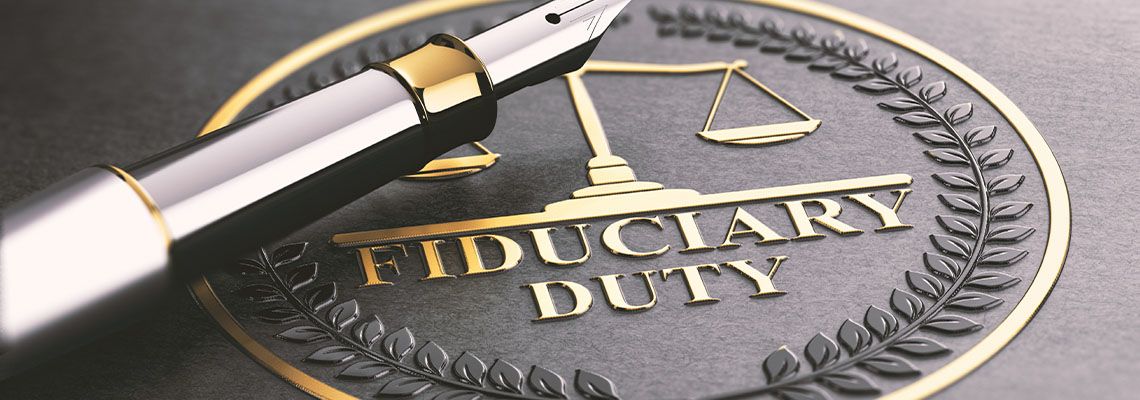
Fiduciary Duties & Misuse of Power of Attorney
A power of attorney (POA) is a critical addition to a comprehensive estate plan. Unfortunately, powers of attorney also have the potential for abuse and misuse. Many cases go unnoticed because it’s not always easy to tell whether your loved one’s POA is being misused.
If you suspect that your loved one’s agent is abusing their power or misusing their POA privileges, contact an attorney immediately. The longer you wait, the more harm can be done and the less likely you are to prove that power of attorney abuse has occurred.
Our probate attorneys at StachlerHarmon Attorneys at Law can help you address your concerns regarding potential misuse or abuse of a power of attorney and take the necessary steps to protect your loved one’s legacy. With an office in Dayton, Ohio, we serve clients in surrounding counties, including Clark, Butler, Warren, Greene, Miamisburg, and Preble.
The Role of the Power of Attorney
A power of attorney is a legal document used to appoint another individual (the agent) to act on behalf of another individual (the principal) should the principal become incapacitated. Depending on the extent of the power granted to the principal, the duties of a power of attorney may include the following:
Making financial decisions for the principal
Paying the principal’s bills and taxes
Making healthcare decisions
Buying and selling real estate or investments
Conducting business on behalf of the principal
Managing the principal’s property
Given the role of a power of attorney in the principal’s life after incapacity, the agent must always place the principal’s interests ahead of their own. This is known as the agent’s fiduciary duty. The duty requires the agent to act in the best interests of the principal when exercising the granted powers.
Power of Attorney Abuse
Power of attorney abuse is the term used to describe situations in which the agent misuses the powers granted by the principal in the POA document. Generally speaking, abusing a power of attorney means that the agent makes decisions or takes actions that are not in the principal’s best interests.
The most common form of power of attorney abuse is financial abuse, which involves the agent misusing the principal’s money or assets under their control for their own monetary gain. Other examples of power of attorney abuse include:
Fraud
Theft
Forgery
Conversion
Misappropriation
Embezzlement
Medical abuse
Elder abuse
Physical abuse
Verbal abuse
Neglect
As you can see, power of attorney abuse can take many different forms. Unfortunately, family members and loved ones may not always be able to recognize signs of POA abuse. If you suspect that your loved one’s agent is misusing the authority granted by a power of attorney, contact an attorney as soon as possible. A skilled attorney may be able to help you revoke or limit the POA to stop the misuse of a power of attorney and protect your loved one.
Breach of Fiduciary Duty
As mentioned earlier, a power of attorney creates a fiduciary relationship between the principal and the agent. In other words, it means that the agent is responsible for placing the principal’s interests ahead of their own and acting in good faith within the scope of the authority granted by the POA document. Failure to do so can give rise to what is called a “breach of fiduciary duty.”
Typically, well-drafted POAs clearly define the extent of the authority granted to the agent and spell out the duties of a power of attorney. As a result, the agent can be held accountable for a breach of fiduciary duty when they exceed the powers granted by the principal. Some of the examples of a breach of fiduciary duty in POAs include:
Self-dealing
Misappropriation
Commingling funds
Embezzlement
Mishandling funds or assets
In the context of power of attorney, a breach of fiduciary duty could be any action the agent takes in their position of power to the principal’s detriment, personal gain, or their own advantage.
Limiting/Revoking a POA
When the agent misuses the authority granted to them by the power of attorney or breaches a fiduciary duty owed to the principal, concerned family members and relatives can stop the abuse or misuse from occurring by limiting or revoking the POA.
Revoke the document. There are two options for revoking a power of attorney: (1) the principal can revoke the document if they still have the legal capacity to do so, and (2) family members can file a petition asking the court to revoke the power of attorney due to abuse or breach of fiduciary duty.
Limit POA privileges. Powers granted by a POA can be limited in one of two ways: (1) when drafting the document, the principal can limit the agent’s authority or provide third-party oversight of the agent’s actions, and (2) family members can file a petition asking the court to appoint a guardian who would manage the principal’s affairs, limiting the agent’s POA privileges.
Consider contacting a knowledgeable attorney to discuss your options to stop your loved one’s agent from misusing a power of attorney before they do any more damage.
Get Trusted Legal Advice Today
Powers of attorney are helpful tools that protect those who cannot make decisions on their own. The problem is that a power of attorney can be abused. At StachlerHarmon Attorneys at Law, we assist clients with various estate planning and probate matters, including limiting and revoking a power of attorney. If you suspect misuse of a power of attorney or a breach of fiduciary duties, reach out to our Dayton, Ohio, office as soon as possible.
